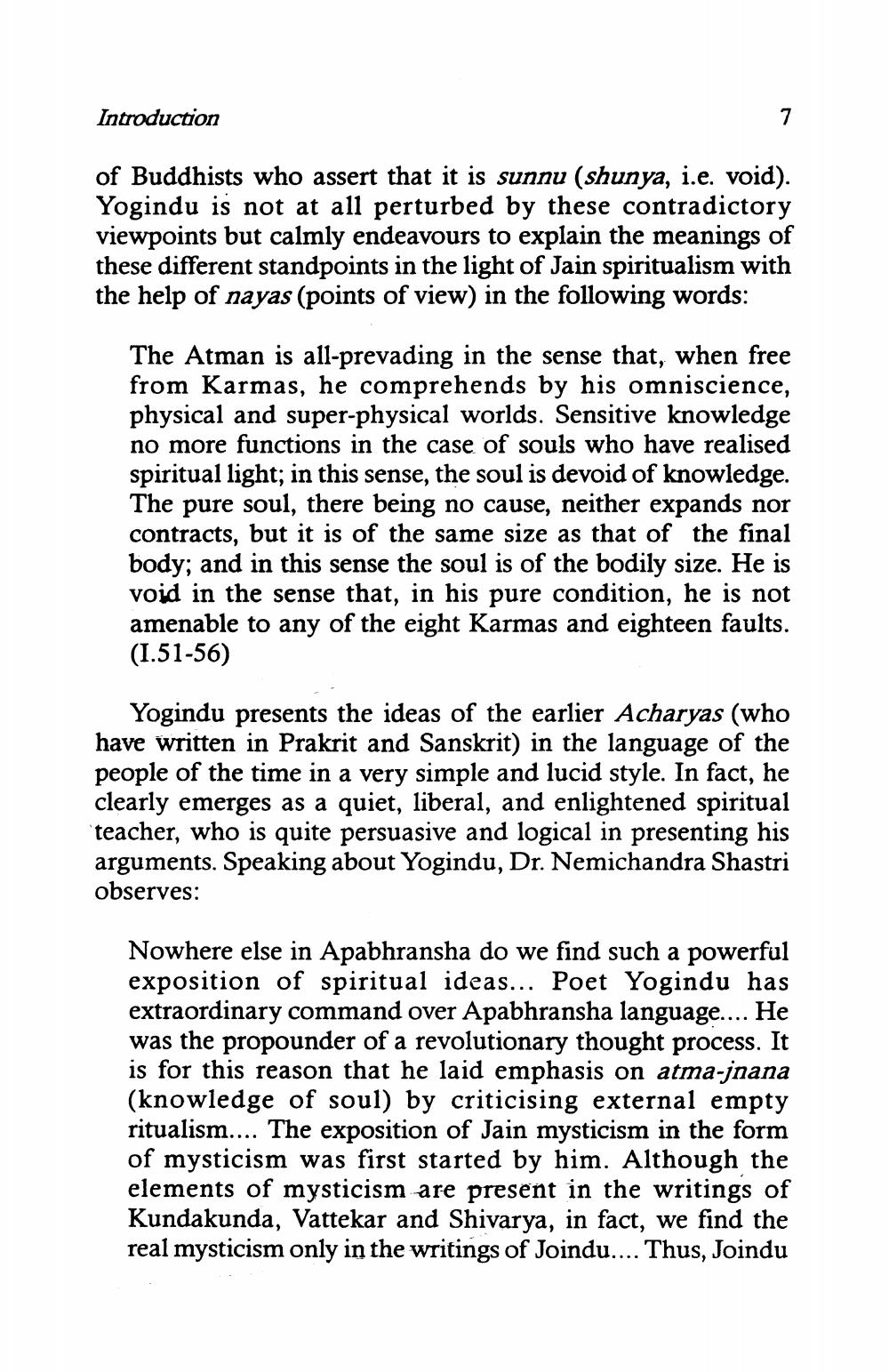________________
Introduction
of Buddhists who assert that it is sunnu (shunya, i.e. void). Yogindu is not at all perturbed by these contradictory viewpoints but calmly endeavours to explain the meanings of these different standpoints in the light of Jain spiritualism with the help of nayas (points of view) in the following words:
The Atman is all-prevading in the sense that, when free from Karmas, he comprehends by his omniscience, physical and super-physical worlds. Sensitive knowledge no more functions in the case of souls who have realised spiritual light; in this sense, the soul is devoid of knowledge. The pure soul, there being no cause, neither expands nor contracts, but it is of the same size as that of the final body; and in this sense the soul is of the bodily size. He is void in the sense that, in his pure condition, he is not amenable to any of the eight Karmas and eighteen faults. (1.51-56)
Yogindu presents the ideas of the earlier Acharyas (who have written in Prakrit and Sanskrit) in the language of the people of the time in a very simple and lucid style. In fact, he clearly emerges as a quiet, liberal, and enlightened spiritual teacher, who is quite persuasive and logical in presenting his arguments. Speaking about Yogindu, Dr. Nemichandra Shastri observes:
Nowhere else in Apabhransha do we find such a powerful exposition of spiritual ideas... Poet Yogindu has extraordinary command over Apabhransha language.... He was the propounder of a revolutionary thought process. It is for this reason that he laid emphasis on atma-jnana (knowledge of soul) by criticising external empty ritualism.... The exposition of Jain mysticism in the form of mysticism was first started by him. Although the elements of mysticism are present in the writings of Kundakunda, Vattekar and Shivarya, in fact, we find the real mysticism only in the writings of Joindu.... Thus, Joindu




